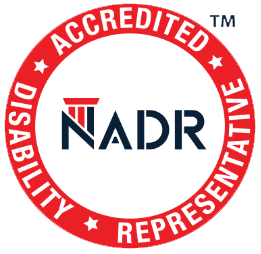What You Need To Know About Residual Functional Capacity (RFC)
If you are unable to work due to a disability, the Social Security Administration (SSA) must know what work you are still capable of doing, both physically and mentally. Thus, if you plan on submitting an application for Social Security Disability benefits, it is important to be familiar with the Residual Functional Capacity form (RFC). An RFC assessment is an evaluation to determine the limits of your work capacity despite your disability. Basically, what kind of work you can still complete, how much you can do, and for how long. Continue on to learn more about Residual Functional Capacity below.
How to Determine Your RFC
An RFC assessment is often required by the SSA before the final decision has been made about your eligibility for SSDI and SSI disability benefits. One option for determining your RFC involves an evaluation by a disability claims examiner and a medical consultant, a DDS physician. Both parties will use your medical records and doctors’ notes to perform the assessment. Then, a DDS physician will identify how and if your current limitations prevent you from meeting the requirements of your ability to work.
Conversely, you also have the option to have your RFC form filled out by your doctor. He or she knows more than anyone about your disability and the impact it is having on you and your ability to work. The SSA will take your doctor’s opinion seriously and will take it into consideration when determining whether you are eligible to receive benefits. Overall, having your doctor’s help may increase your chances of your claim being approved.
How the SSA Assesses Your Work Capabilities
The SSA will consider all of your possible impairments, as they need as much detail as possible about your diagnosis. To determine the effect that your disability has on your ability to work, the SSA will consider your physical and mental capacity from sedentary work to very heavy work. Some of the criteria they may use to determine your physical abilities include the following:
- How long can you stand, sit, and walk?
- Do you have any problems hearing, speaking, or seeing?
- Can you work at heights?
- Are you able to balance?
- Can you complete activities such as climbing stairs, kneeling, crouching, reaching?
- Are you able to tolerate extremely high or low temperatures, humidity, noise, dust, odors, or fumes?
- Can you work in and around machines?
Mental Evaluation
The SSA will also look at your mental capabilities in the workplace using the following criteria (but not limited to):
- Can you understand and remember instructions?
- Can you get along with coworkers and other people you come into contact with?
- Do you work well with your supervisors?
- Can you maintain your attention and concentration during the workday?
- Can you easily cope with changes in the work area?
- Are you able to be reliable and show up on time?
Let DSS Guide You
Keep in mind, it’s very important that your RFC form is filled out completely and accurately. And, to help prevent delay in the application process, don’t go at it alone. Turn to Disability Support Services. Our compassionate, experienced case managers will help to ensure you have the best chance of receiving the disability benefits you deserve. Contact us today at 410-244-0006.




